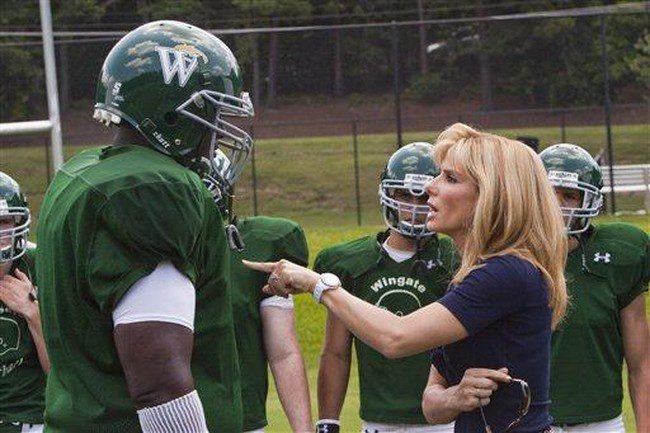As the credits roll from the Oscar-winning 2009 film, “The Blind Side”, one might assume they have just witnessed the genuine heartwarming story of Michael Oher’s journey from hardship to NFL success. However, on Monday, the narrative took a startling twist as Oher broke ranks with the storyline borne by the Hollywood treatment. In a recent petition before the Tennessee court, Oher alleges the touching portrayal was built on a masterminded lie that served to grease the wheel of the Tuohy family’s personal enrichment at his expense.
Sad to hear that there is trouble in the “Blind Side” family pic.twitter.com/JWon9Ga01K
— • ᗰISᑕᕼIᗴᖴ ™ • (@4Mischief) August 16, 2023
“The Blind Side”, which grossed over 300 million dollars and won universal acclaim, brought Sandra Bullock an Academy Award for her portrayal of Leigh Anne Tuohy- the affluent woman who supposedly adopted Oher into her family. However, this premise now stands aggressively probed. Oher’s petition states that not only were the Tuohys never his adoptive parents, but they also slyly turned him into their ward within three months of his 18th birthday. If Oher’s claims hold, then the Tuohys were treating Oher as a financial interest unbeknownst to him, rather than adopting him as their own.
The revelations can be shockingly hard to stomach, especially so given the film’s heartwarming narrative that left a mark on general audiences around the world. As per the petition, the Tuohys are alleged to have struck deals that granted them and their biological children vast sums in royalties from the film, with Oher left out in the cold. The cherry-added insult, Oher adds, is that the Tuohys have continued to herald him as their adopted son, further exploiting his name and story to promote their foundation as well as Leigh Anne Tuohy’s work as an author and motivational speaker.
Oher’s breaking silence is inflected with a sense of betrayal and embarrassment. His filing claim states, “Michael Oher discovered this lie to his chagrin and embarrassment in February of 2023, when he learned that the Conservatorship to which he consented on the basis that doing so would make him a member of the Tuohy family, in fact provided him no familial relationship with the Tuohys.”
The court petition adds further unsettling layers to the tale. In seeking to sever the conservatorship and preventing the Tuohys from further profiting off his name or likeness, Oher is also demanding an account of the earnings made from his success by the Tuohys. Notably, despite the film’s blockbuster revenue, he is yet to receive any monetary benefit from it.
Now we must reflect on the silent corrosion that potentially underpinned his relationship with the Tuohy family. As a rising high school senior, Oher allegedly signed the conservatorship papers under the impression that it equated to adoption. If he had been adopted instead, he would have been legally considered a member of the Tuohy family whilst retaining control of his financial affairs- a stark contrast to the control the Tuohys exercised over him.
Perhaps then it becomes apt to pose the haunting question- is the truth as elusive as the film’s namesake, the blind side? Be it as it may, this scenario serves as a sharp reminder that not all is as it seems in the glittering world of Hollywood narratives. At this stage, it’s imperative to keep our judgements at bay, awaiting the family’s legal response to the allegations. Hereafter, what remains to be seen is how this off-screen drama unfolds itself within the courtroom corridors. As of this moment, only one thing is certain: “The Blind Side” story is far from over.



